 Hannah Barnes will need a considerably bigger trophy cabinet after picking up three category trophies plus the coveted best-of-the-best award for Outstanding Contribution to Health and Medical Journalism at the 2024 Medical Journalists’ Association Awards.
Hannah Barnes will need a considerably bigger trophy cabinet after picking up three category trophies plus the coveted best-of-the-best award for Outstanding Contribution to Health and Medical Journalism at the 2024 Medical Journalists’ Association Awards.
Hannah collected the prize for Feature of the Year (general audience) for a searing, and deeply personal, piece for the New Statesman on birth trauma.
She won Science Explained and the Dr David Delvin award for Sex and Sexual Health Journalism for pieces which detailed the litany of failings at the Tavistock GIDS clinic — which also the focus of her bestselling book Time to Think. Her Delvin entry also took the headline award for Outstanding Contribution: Hannah Barnes
Watch the announcement and Hannah’s post-awards comments here, catch up with more video highlights and pix from the night — and keep an eye out here and on social media for further updates and clips — as well as a video of highlights of all of the awards and comments from our winners and sponsors.
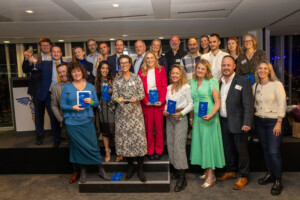
2024 MJA Awards winners
The MJA Awards are a celebration of excellence — and as our stunning roll-call of winners, highly commended and finalists reveal, there is much to celebrate. We salute the hundreds of talented health and medical journalists who entered, and gave our judging panels such a difficult job in making their final decisions.
Winners and those highly commended were announced at the MJA Awards Ceremony at the 17th floor of the News Building and our host for the evening was the fabulous Dr Sian Williams, who has swapped the BBC Breakfast sofa for frontline of healthcare, as an HCPC-registered Counselling Psychologist who helps emergency responders manage acute anxiety, stress and trauma.
No members of the Executive Committee were involved in the judging. To ensure that EC members are not disadvantaged by serving on the committee, they are permitted to enter. However, those who do so are not involved in any Awards’ decisions.
NB: Links are provided to finalists work where they submitted their entry as a link, for those submitting by file (generally because work is behind a paywall) permission is being sought for accessible links and/or to link to a file
Student Journalist of the Year
Entrants were studying at a Higher Education institution in the UK or had been studying at the time the work entered was first published or broadcast
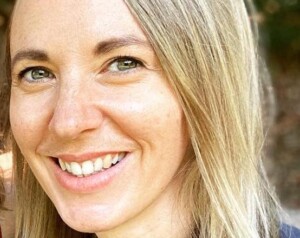
Tessa Gooding
Winner – Tessa Gooding
Kingston University NCTJ-accredited Journalism Postgraduate Diploma
Kingston Courier website: Pregnancy Associated Osteoporosis: I have 72-year-old bones
A really compelling read, well written with good, fluent storytelling and well-researched depth, which kept you captivated. An excellent combination of personal narrative and deeper consideration of wider issues of osteoporosis in pregnancy.
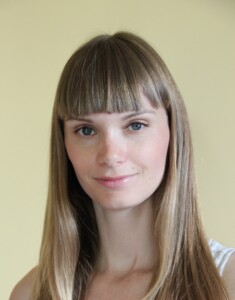
Alice Klein
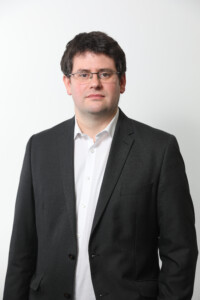
Ben Spencer. Photograph by Richard Pohle
The Gordon McVie Award for reporting cancer research — supported by Roche
Winner – Alice Klein
New Scientist: Bugging Cancer
We loved this, the combination of historical elements, the latest research in the field and a patient story. The topic was something new to judges and well-handled. Klein made what could have been heavy science into an accessible, interesting and engaging story.
Highly Commended – Ben Spencer
The Sunday Times: Cancer survivors to hit 5 million. Now to sort the side-effects
The judges were pleased to see a story focusing on survivorship and the long-term effects of cancer treatments – a very real issue as more people survive cancer. Spencer’s story gives this issue a high profile that we believe Prof McVie would applaud, reflecting on the progress that has been made in the last 20 years.
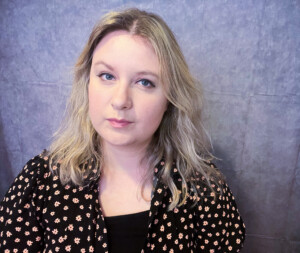
Emily Townsend
Newcomer of the Year
36 months or fewer in health/medical journalism
Winner – Emily Townsend
Health Service Journal: Over 30 sepsis deaths linked to ‘systemic’ failings, investigation reveals
Emily’s piece shone a much-needed spotlight on ongoing and worrying failures by the healthcare system to recognise and treat sepsis, leading to a number of avoidable deaths. Her article was backed up by rigorous analysis of coroners’ reports, trust data, case studies and quotes from key experts.
Mental Health Story of the Year — supported by Edelman
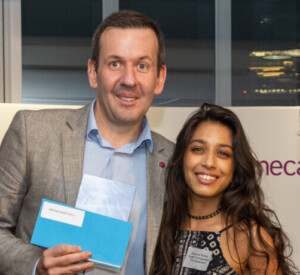
Rebecca Thomas and Rob Mulhern
Winning Team – Rebecca Thomas, Rob Mulhern, Saywah Mahmood, Mark Thompson, Ashish Joshi
The Independent: Mental health patients ‘raped and sexually assaulted’ as NHS abuse scandal revealed
Investigative journalism at its best. The scale, depth and importance of the investigation deserve to be recognized. This work shone a much-needed light on the treatment of vulnerable women and systemic failures across the mental health system.
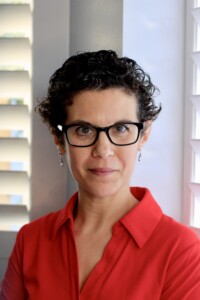
Hannah Barnes
The Dr David Delvin Award for sex and sexual health journalism — supported by Christine Webber
Winner – Hannah Barnes
New Statesman: The Cass Review into children’s gender care should shame us all / How children’s gender care went so wrong
Accessible, readable, balanced article covering an important and contentious topic. She recognises that this affects a very vulnerable group of people who need understanding, help and support. She highlights that any treatment needs to be evidence based, and where such evidence doesn’t exist, we should take steps to find the evidence to ensure that the patients get the best possible care.
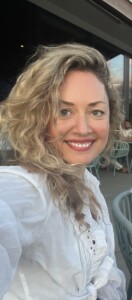
Camilla Horrox
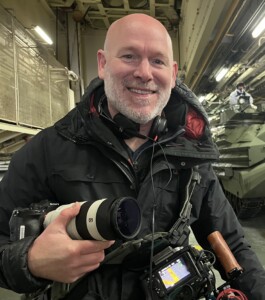
James Anderson
Health and Climate Change Award supported by Haleon
Winning Team – Tulip Mazumdar, Wilfred Thomas, James Anderson, Camilla Horrox
BBC News: India’s Mothers: Bearing the heat
Deeply moving piece which takes research into the correlation between heat and increased risk of miscarriage and stillbirth as the starting point for an exploration of the impact of climate change on pregnant manual labourers in Southern India. It gives a voice to women not often afforded one. Heartfelt and heartbreaking.
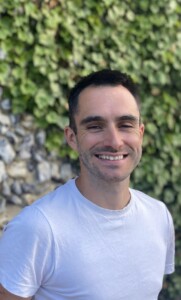
Jason Hosken
Podcast of the Year
Winning Team – Jason Hosken, Gilead Amit, Alok Jha, Nico Raufast
The Economist: Babbage: How to battle superbugs with viruses
A fascinating story, well told with pace, conveying information few will know. Excellent research.

Carolyn Wickware
Feature of the Year (specialist audience) supported by Doctors’ Association UK
Winner – Carolyn Wickware
The Pharmaceutical Journal: Uncompassionate use: the inconsistent offering of life-saving unlicensed medicines
An excellent piece of investigative journalism requiring a hugely impressive amount of research, with the patient perspective making it a more emotive read.
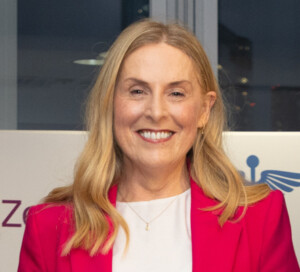
Sharon Barbour
Feature of the Year (broadcast)
Winner – Sharon Barbour
BBC Look North: New hope for Neuroferritinopathy
A unique and shocking portrayal of an unusual condition and a possible cure. Compelling viewing.

Hannah Barnes
Feature of the Year (general audience)
Winner – Hannah Barnes
New Statesman: The Trauma Ward
A hugely authoritative, well-researched and well-written piece, that combines the journalist’s deeply personal trauma of childbirth with a shocking account of Britain’s failing maternity services, weaving in excellent expert sources and case histories.
Highly Commended – Venetia Menzies
The Sunday Times: Anxiety drug pregabalin killed my son — and hundreds more are dying from it
Venetia delivers a shocking story describing the little-known side effects of the of the anti-anxiety drug, pregabalin, which has the fastest-rising death toll of any drug in the UK. An important drug for epilepsy, it is now widely prescribed for depression and for pain and despite the warnings, prescriptions continue to rise, particularly amongst the poorer populations. This powerful feature demonstrates excellent research.
News Story of the Year (specialist audience) supported by Real Chemistry
Lawrence Dunhill
Health Service Journal: Revealed: How trust execs resisted concerns over Letby
A powerful story that gets under the skin of the Lucy Letby murder trial. Revealing the internal workings at the NHS trust, it highlights the strained relationship between clinicians and managers and damage that caused.
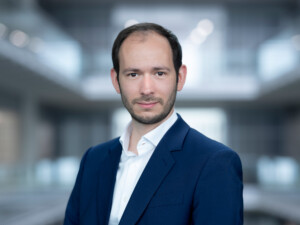
Sam Holder
News Story of the Year (broadcast) supported by Virgo
Winning Team – Sam Holder, Louisa Felton, Rob Turner, Patrick Russell
ITV News: The Teenagers Killed by Fake Prescription Drugs
Really impressive tenacity in pursuing a two-year investigation on a very worrying issue, told with clarity and authority. An outstanding piece of committed original journalism, powerfully presented with strong case studies.
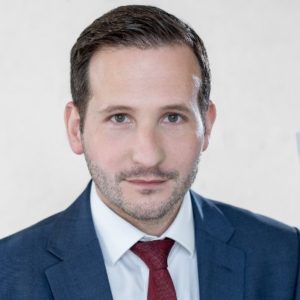
Shaun Lintern
News Story of the Year (general audience) supported by JPA Health
The judges commented on the extremely high standard of entries in this category
Winner – Shaun Lintern
The Sunday Times: Revealed: the files that show how Lucy Letby was treated as a victim
The appalling murder of babies at the Countess of Chester Hospital was one of the biggest news stories of the year. Through his reporting, Shaun took the story deeper, revealing the management practices that created an environment where these crimes could be committed and posing important questions about the wider culture across the NHS.
Highly Commended – Rebecca Thomas
The Independent: Revealed: NHS regulator’s ‘culture of fear’ that leaves rogue nurses free to abuse patients
Rebecca has used her deep knowledge, excellent contacts, and journalistic persistence to highlight an important issue that needs addressing. This piece has directly led to change at the regulator and adds to Rebecca’s reputation as one of the most impactful journalists.
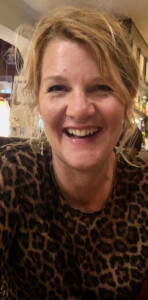
Lucy Watkinson
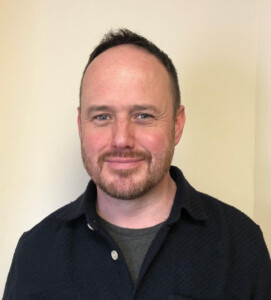
Niall Gallagher
Case Study of the Year
Winning Team – Dominic Hughes, Lucy Watkinson, Niall Gallagher
BBC TV News (Breakfast, 1 O’clock News, 6 O’clock News), BBC Online: Never start vaping, says 12-year-old girl with lung damage
A powerful, shocking case study on one of this decade’s biggest health issues. This entry created a strong emotional reaction in the audience in a way that places itself at the heart of the ongoing debate in this area. If we are considering impact this particular case study was most likely to drive awareness, behavioural change and ignite policy discussions. It stuck in the minds of the judges, we knew it instantly, which is a real mark of its power.
Highly Commended – Sharon Barbour
BBC Breakfast: Doctor Donor
A powerful and inspirational case study on many levels. With several twist and turns, this story took the viewer on an emotional journey with a highly impactful twist at the end of the tale. A moving and memorable piece, with a great call to action for donors, which generated a lot of discussion between judges.

Hannah Barnes
Science Explained
Winning Team – Hannah Barnes, Sean Clare
BBC Newsnight, BBC Two: Children on puberty blockers saw mental health change, new analysis suggests
This entry not only delivers a complex emerging issue to its broad audience but achieves this with a wider insight into the scientific process. It tackled a contentious and sensitive subject with clear focus and balance, and with a convincing narrative.
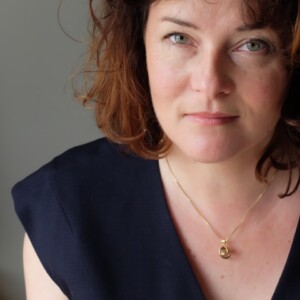
Adele Waters
Freelance of the Year
Entrants submitted three pieces of work for judging
Winner – Adele Waters
For her work published in Daily Mail and the BMJ (article 1), article 2
Original stories and excellent writing for diverse audiences. The quality of Adele’s writing and research engaged the judges and a major disclosure of the scale of sexual assault in the NHS (written jointly with Ingrid Torjesen) was one of the most important and shocking revelations of the year.
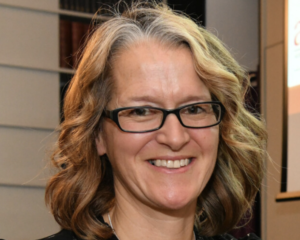
Dawn Connelly
Editor of the Year supported by ABPI
Entrants submitted three pieces of work
Winner – Dawn Connelly
Senior Features Editor, The Pharmaceutical Journal
This editor delicately balances the bread-and-butter topics of daily importance to readers’ lives with original, investigative reporting on subjects of wider public importance. They use FOI effectively to find, develop and tell consequential stories of public finance and patient impact. And expertly edit complex stories that have the potential to be dry into fascinating reads – stories told well in spare and clear language, marshalling evidence effectively.

Hannah Barnes
Outstanding Contribution to Health and Medical Journalism – supported by AstraZeneca
Our premier award, which is decided by a majority vote of our full panel of independent judges from winners in all categories.
Winner – Hannah Barnes
New Statesman: The Cass Review into children’s gender care should shame us all / How children’s gender care went so wrong
Accessible, readable, balanced article covering an important and contentious topic. She recognises that this affects a very vulnerable group of people who need understanding, help and support. She highlights that any treatment needs to be evidence based, and where such evidence doesn’t exist, we should take steps to find the evidence to ensure that the patients get the best possible care.
Congratulations to all the finalists in the 2024 awards
Details of awards available to entry in 2024 and rules of entry.





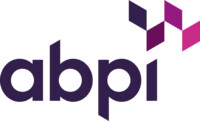

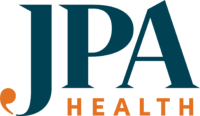


Recent Comments